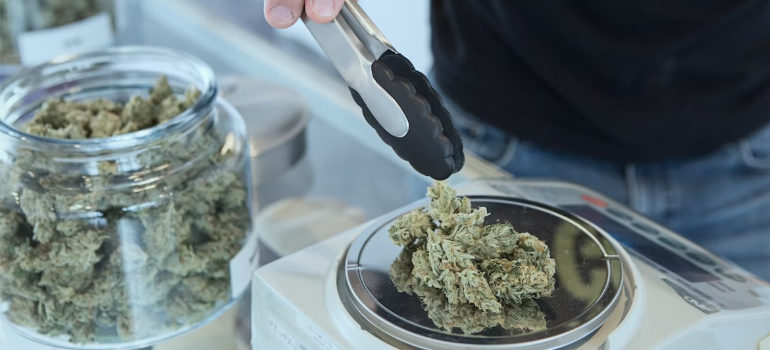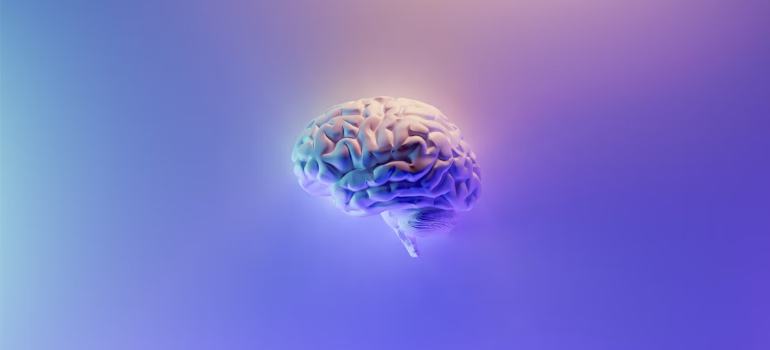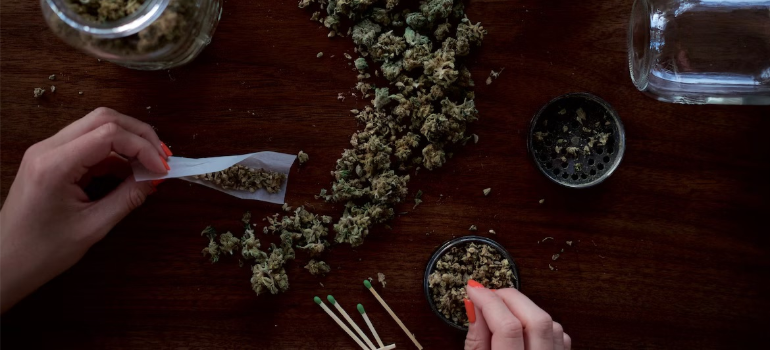Marijuana Detox
Get Help Now
Marijuana is rather unique among addictive substances. In the US, it enjoys considerable social acceptance, unlike most other addictive substances. It is also largely perceived as harmless, since by itself it doesn’t lead to overdose deaths. However, it remains a highly addictive substance that can harm the individual’s physical and mental health. At Archstone Behavioral Health, our Lantana Florida treatment center has tackled marijuana addiction manifold – and we keenly understand the dangers it can entail. If you or your loved ones are in need of a program for marijuana detox Florida has to offer, we’re here to offer information and professional services.
What is marijuana?
Marijuana is a mixture of the dried flowers of Cannabis sativa. It is typically greenish, gray, or brown, and may resemble tobacco. In the US, it has been a Schedule I controlled substance under the Controlled Substances Act since 1970.
Marijuana is a difficult substance to classify, as NIH notes it “is complex chemically and not yet fully understood”. It acts as both depressant and stimulant, and typically has depressing, euphoric effects. By NIH’s classification it is not a narcotic, but it is a psychoactive substance as it “alters mental functioning”.
As a very popular substance, marijuana has more street names than most others. The better-known ones include weed, pot, Mary Jane, ganja, grass, and others.

Forms and means of consumption
Marijuana is primarily smoked, either in combination with tobacco or by itself. Users typically smoke it in “joints”, which are hand-rolled cigarettes, “blunts”, which are marijuana rolled in cigar wraps, or “bongs”, which are water pipes.
Because of its popularity, however, alongside its legal status in many states, other ways to consume it have emerged too. A notable one is through vaporizers, and non-smoking ways now include brewing tea and mixing it into foods.
Finally, marijuana is unfortunately a substance that’s often combined with other substances. This is dubbed “polydrug use”, and describes simultaneous use of different substances. Marijuana detox Florida centers often have to deal with this phenomenon, and it does complicate the detox process. Polydrug use typically aims to either enhance the effects of both substances used, or to have the effects of one combat those of the other. In this case, marijuana may either be used to help the user relax after consuming a stimulant, or to increase the intensity of a depressant’s effects.
Psychoactive chemicals and function
The way marijuana acts on the brain is through delta-9-tetrahydrocannabinol (THC). This famous chemical shares a similar structure with the brain chemical anandamide, which allows it to alter normal brain communication. NIDA explains:
Because of this similarity, THC is able to attach to molecules called cannabinoid receptors on neurons in these brain areas and activate them, disrupting various mental and physical function[.] The neural communication network that uses these cannabinoid neurotransmitters, known as the endocannabinoid system, plays a critical role in the nervous system’s normal functioning, so interfering with it can have profound effects.
[…] THC, acting through cannabinoid receptors, also activates the brain’s reward system, which includes regions that govern the response to healthy pleasurable behaviors such as sex and eating. Like most other drugs that people misuse, THC stimulates neurons in the reward system to release the signaling chemical dopamine at levels higher than typically observed in response to natural rewarding stimuli. The surge of dopamine “teaches” the brain to repeat the rewarding behavior, helping account for marijuana’s addictive properties.
It is this kind of “teaching” which facilitates marijuana addiction, as we’ll also see next.

The effects of marijuana
A key challenge to marijuana detox Florida programs lies in marijuana’s profound effects on the brain. These may not seem traditionally impactful, as marijuana by itself has not caused any known overdose. However, they are no less notable and potentially destructive if left unattended.
Marijuana is rather notorious for having both euphoric and unpleasant effects. While these can vary from person to person, the former will include:
- Relaxation and general euphoria
- Altered perception of time
- Increased appetite
It can also have unpleasant effects, however, especially for inexperienced users or if consumed in excess. Such effects can include:
- Feelings of excessive weakness or powerlessness
- Dysphoria, including anxiety, fear, distrust, or panic
- Acute psychosis, which includes hallucinations, delusions, and a loss of the sense of personal identity
Finally, as highlighted above, marijuana may be smoked or consumed in foods or beverages. If smoked, the effects are immediate; THC passes from the lungs to the bloodstream and reaches the brain. If eaten or drunk, the drug must first pass through the digestive system which delays the effects for about 30 minutes to an hour.
Marijuana addiction symptoms
Marijuana is quite addictive, according to studies cited by the CDC. About 30% of marijuana users have a marijuana use disorder (MUD), and cannabis users have about a 10% likelihood of becoming addicted. In all such cases, identifying addiction caused by prolonged use is crucial; the sooner addiction is recognized, the easier it will be for a marijuana detox Florida program to address it.

Use does not at all times signify addiction, of course. The CDC pinpoints the following warning signs and symptoms of marijuana addiction:
- Using more marijuana than intended
- Trying but failing to quit using marijuana
- Spending a lot of time using marijuana
- Craving marijuana
- Using marijuana even though it causes problems at home, school, or work
- Continuing to use marijuana despite social or relationship problems
- Giving up important activities with friends and family in favor of using marijuana
- Using marijuana in high-risk situations, such as while driving a car
- Continuing to use marijuana despite physical or psychological problems
- Needing to use more marijuana to get the same high
- Experiencing withdrawal symptoms when stopping marijuana use
Marijuana withdrawal symptoms
Unlike addiction symptoms, which largely come about due to prolonged use and its effect on the user’s lifestyle, withdrawal symptoms occur in response to the substance’s absence. As with all addictive substances, once consumption stops the body attempts to achieve homeostasis; to function without the substance.
Withdrawal symptoms do vary from one person to the next, of course. They also depend on an array of factors, like addiction duration and severity, polydrug use, and others. Still, typical withdrawal symptoms that marijuana detox Florida programs often need to address can include:
- Anxiety
- Depression
- Agitation and irritability
- Headaches
- Restlessness
- Stomach pains
- Appetite loss, sometimes resulting in weight loss
- Nausea
- Insomnia or fatigue
Needless to say, these symptoms can be quite severe in more advanced cases. They’re a primary cause of early relapse, as many individuals can’t deal with them alone. This is why we strongly recommend that marijuana users seek professional help, instead of trying to detox on their own. Such attempts are rarely successful, and the lack of clinical monitoring can put the individual’s health at risk.

What can prevent marijuana users from seeking detox?
Having mentioned DIY or home detox, here we should note that marijuana has a rather unique status among addictive substances. In brief, it’s often seen as less dangerous, less addictive, or generally not as serious an addiction as others.
While there is some truth to that, it’s our moral obligation to shed some light into these unique factors and how they shouldn’t affect one’s willingness to seek help.
Social acceptance
First, as mentioned in the beginning, marijuana does enjoy considerable social acceptance in the US. Indeed, its legalization for some or all uses is becoming an increasingly popular position, as Pew Research Center finds:
- 59% of US adults say that marijuana should be legal for medical and recreational use by adults
- 30% say that it should only be legal for medical use by adults
- Only 10% say it should not be legal at all
This means a staggering 89% of US adults are in favor of some form of marijuana legalization. There are many reasons for this trend, of course, but exploring these here would be secondary. What’s important to note is that marijuana enjoys considerable social acceptance, which may have one believe addiction to it is no big deal.
Peer pressure
A second factor, which is also one marijuana detox Florida programs continuously need to address, is peer pressure. In part because of its social acceptance, marijuana is one of the most common substances to consume in social settings. In turn, these circumstances may make the individual both more likely to normalize marijuana use and less likely to quit it. Indeed, Harvard University finds that young marijuana users may be more susceptible to peer pressure, and thus less likely to seek help.

Legal status
And third, as highlighted above, marijuana is one of few addictive substances that enjoy some legal status in the US. DISA offers a marijuana legality map, if you’d like to visualize this complex state of affairs.
In brief, its recreational use has been legalized in 21 states, and another 10 states have decriminalized its use. As of 2023, the federal government is also leaning toward a federal legalization of some kind, having already pardoned Americans with federal, low-level cannabis convictions. This factor also serves its part in normalizing marijuana use, which often diminishes the true impact of marijuana addiction.
The process of marijuana detox in Florida
With the above in mind, here we can outline the exact process of marijuana detox. If you’re reading this article, chances are you or your loved ones may need such services. If so, this section should offer you some peace of mind.
#1 Assessment
First, after the admission process, treatment providers will assess the patient’s condition to help devise a personalized marijuana detox Florida treatment plan. The medical assessment process will evaluate:
- Physical and mental health, including detrimental effects to both caused by addiction and co-occurring mental health disorders
- Medical history, such as past or current medication use and other conditions
- Marijuana addiction history, including duration, severity, and symptoms, as well as polydrug use
All such information will help determine the best possible detox course. This includes medications used, exact treatment program sequence, and more.

#2 Pharmacotherapy and withdrawal management
Once the detox process begins, the primary challenge lies with withdrawal symptom management. This phase may differ, but will typically look as follows:
- Day 1; during the first day of abstinence, such symptoms as irritability and insomnia may begin.
- Days 2-3; this will typically be when withdrawal symptoms peak, and strong cravings emerge. This is often the most dangerous phase as regards relapse.
- Days 4-14; up until the second week, symptoms typically continue to improve. Cravings and some symptoms may persist, however, as the brain adapts to the absence of THC.
- Days 15 onward; most symptoms should be gone after the second week, although psychological symptoms may remain.
Since there are currently no available medications for marijuana withdrawal, treatment providers will offer over-the-counter medications to treat specific symptoms. A common example of this is using Paracetamol or Ibuprofen to treat headaches and muscle pains. They may also prescribe such medication as Metoclopramide or Promethazine to help with nausea and vomiting.
#3 Post-Detox Period – Monitoring and counseling
Beyond pharmacotherapy, marijuana detox Florida programs strongly emphasize constant patient monitoring and counseling to make this phase as safe and comfortable as possible. Treatment providers will remain alert for any sudden symptoms or complications, and offer any clinical help required. At the same time, as psychological symptoms tend to peak during detox, they will offer counseling to help the individual achieve initial recovery.
The most common, well-established, and effective psychotherapy treatment methods for this phase include:
- Cognitive-Behavioral Therapy (CBT)
- Dialectical Behavioral Therapy (DBT)
- Motivational Interviewing (MI)
For this phase, individual counseling tends to work best. During later programs, psychological support will extend to group therapy, family therapy, and other therapeutic approaches.

Archstone Behavioral Health is here for you
In closing, marijuana addiction is by no means different from other SUDs. It may seem harmless, but it is far from it; like all addictions, it can inhibit everyday life and pose dangers to the individual’s physical and mental health.
At Archstone Recovery, we offer the best program for marijuana detox Florida has to offer. Our certified and experienced staff will make the process as safe and comfortable as possible, so that you or your loved ones can reclaim the addiction-free life you deserve.
If you would like to know more, explore your options, or ask any questions about the process, please feel free to contact us today via email or call us at 561.867.8445.
Accepting Major Insurance Plans




